
Feedback:
We strive to continually improve our course. We would be very grateful if you could take a few minutes to complete our Online feedback form.
| Online feedback form |
The simpleeducation.co website provides a huge resource of key course material, your attendance certificate, live case demonstrations, information on the latest studies and clinical trials. All of this will be housed within your own customised educational passport.
Finally, on behalf of the entire faculty team, we would like to thank you for taking the time to attend the course. We hope you found the course informative and stimulating, leaving you prepared to implement the latest contemporary intracoronary guidance techniques in your catheter laboratory.
| 09.00-09.05 | Welcome and introductions Javier Escaned, Justin Davies |
| 09.05-09.30 | Complex PCI in the aftermath of the ISCHEMIA trial Round table discussion Justin Davies, Javier Escaned, Angela McInerney, José María de la Torre |
| 09.30-11.00 | Decision-making and problem solving in complex PCI: interactive case-based learning #1 Based on a recorded case from Hospital Clinico San Carlos, Madrid Case presenter: Javier Escaned Discussants: Justin Davies, Angela McInerney, José María de la Torre |
| Evolving approaches to intracoronary guidance in complex PCI | |
| 11.00-11.15 | Contemporary use of physiology for PCI planning and guidance Presentation wall Carlo Di Mario |
| 11.15-11.30 | Contemporary use of imaging for PCI planning and guidance Presentation wall José María de la Torre |
| 11.30-12.00 | Open discussion and questions from attendees / Physiology and imaging Justin Davies, Javier Escaned, Nieves Gonzalo, José María de la Torre |
| 12.00-13.00 | Decision-making and problem solving in complex PCI: interactive case-based learning #2 Based on a recorded case from Hospital Clinico San Carlos, Madrid Case presenter: Angela McInerney Discussants: Javier Escaned, Justin Davies, José María de la Torre |
| 13.00-15.00 | Break |
| Complex anatomical subsets (I) | |
| 15.00-15.15 | Intracoronary diagnostics in multivessel disease PCI Presentation wall Ajay Kirtane |
| 15.15-15.30 | Imaging techniques in CTO revascularisation Presentation wall Farouc Jaffer |
| 15.30-17.00 | Live case from St Francis Hospital / Long Island (USA) Operators: Richard Shlofmitz, Allen Jeremias Panelists: Javier Escaned, Nieves Gonzalo |
| 17.00-17.15 | Contemporary aspects of PCI in heavily calcified vessels Presentation wall Javier Escaned |
| 17.15-17.20 | Course Directors - Javier Escaned, Justin Davies |
| 17:20 | Close of play |
| 08.30-08.35 | Introduction Javier Escaned, Justin Davies |
| 08.35-10.00 | Diagnosis and management of patients with INOCA: a crash-course Chairmen: Nigel Jepson, Justin Davies Introduction - Nigel Jepson Does coronary microcirculatory dysfunction matter? - Niels van Royen What causes ischaemia in non-obstructive coronary artery disease? - Javier Escaned Stratified approach to treatment in INOCA - Divaka Perera Assessing INOCA in the catheterisation laboratory: practical aspects - Hernán Mejía-Rentería Interactive discussion Wrap-up |
| 10.00-11.30 | Decision-making and problem solving in complex PCI: interactive case-based learning #3 Based on a recorded case from Hospital Clinico San Carlos, Madrid Case presenter: Nieves Gonzalo Discussants: Salvatore Brugaletta, Armando Pérez de Prado, Javier Escaned |
| Complex anatomical subsets (II) | |
| 11.30-11.45 | Coronary bifurcations: an update on diagnosis, PCI planning and guidance Presentation wall Goran Stankovic |
| 11.45-12.00 | Left main stenosis: an update on indications, PCI planning and guidance Presentation wall Salvatore Brugaletta |
| 12.00-13.30 | Live case transmission from Hospital Clínico San Carlos, Madrid Operators: Javier Escaned / Nieves Gonzalo Discussants: Salvatore Brugaletta, Armando Pérez de Prado |
| 13.30-15.00 | Break |
| 15.00-15.15 | Ultra-low contrast PCI: indication, skills and dedicated technologies Presentation wall Breda Hennessey |
| 15.15-15.30 | Secondary revascularisation after failed PCI or CABG Presentation wall Nieves Gonzalo |
| 15.30-15.45 | Assessment of functional results of coronary revascularisation Presentation wall Allen Jeremias |
| 15.45-16.15 | Open discussion and questions from attendees |
| 16.15-16.30 | Summary of Day 1 and 2 Course Directors - Javier Escaned, Justin Davies |
| 16.30 | Close of play |
Prof Javier Escaned is Head of Interventional Cardiology Section at Hospital Clinico San Carlos (Madrid, Spain). He trained as a cardiologist the United Kingdom before moving to the Thoraxcenter / Rotterdam (The Netherlands), where he obtained his PhD degree in 1994. A skilled interventionalist with over 30 years of experience, he regularly serves as live case operator and educationalist in global events like EuroPCR, TCT or the ESC Congress. He is author of over 400 PubMed indexed scientific articles (h-index 67) on topics that include complex PCI in multivessel disease (principal investigator of SYNTAX II study), left main and chronic total occlusions, and secondary revascularization. His track record in coronary physiology includes being investigator on pivotal FFR trials like DEFER (1998), collaborator with Justin Davies in the validation and clinical implementation of iFR (since 2010), and developer of new methods for the assessment of microvascular and non-obstructive coronary disease. Recent / ongoing trials as Co-PI include ADVISE, ADVISE II, DEFINE FLAIR and ABSORB II PHYSIOLOGY, being investigator also in ILUMIEN I and IV, COMBINE and other studies on coronary imaging. He is currently Deputy Editor for Interventional Cardiology of the European Heart Journal, as well as editor of two large textbooks: “Coronary Stenosis.
Prof Jose M de la Torre is an interventional cardiologist, Head of Hemodynamics and Interventional department of the Marques de Valdecilla University of Santander, Spain. He is member of the scientific committee of the Spanish Society of Cardiology and is fellow of the European Society of Cardiology. Former associate director of the Trans Catheter Therapeutics Meeting in US. Faculty of ESC, PCR, ACC and TCT meetings. Coordinator of the ESTROFA, XIMA and LITRO study groups. Prof De La Torre is a member of the editorial committee of the Revista Español de Cardiologia,, Consultant editor of JACC Cardiovascular interventions, Section editor in Eurointervention and Editor in chief of REC: Interventional Cardiology. Research coordinator in EPIC foundation. In 2016-2017 he was a visiting scientist at Harvard-MIT biomedical engineering center. His research interests include intravascular imaging, coronary artery disease and drug eluting stents.
Prof Carlo Di Mario is Professor of Cardiology at the University of Florence and Director of the Structural Interventional Cardiology Division of the University Hospital Careggi, Florence, Italy. Previous posts included 15 years as Professor of Clinical Cardiology at Imperial College of Sciences, Medicine & Technology, London and Consultant Cardiologist at the Royal Brompton Hospital. He also practiced at the San Raffaele University Hospital, Milan, Italy. He trained in Cardiology at the University of Padova, Italy, but he soon moved for interventional training at the Thoraxcentre of Rotterdam, the Netherlands, where he also completed a PhD in Intracoronary Ultrasound Imaging and Doppler. Despite his teaching, research and administrative commitments, he maintains an active clinical involvement performing more than 100 PCI per year with special interest in the treatment of calcified lesions, chronic total occlusions, bifurcations, and diffuse disease. He is a regular TAVI operator and certified implanter for the Medtronic Evolut R and Edwards Sapien 3 transcatheter aortic valves. He participated in more than 260 MitraClip implantations in London and Florence and has recently started direct annuloplasty with the CardioBand. Professor Di Mario pioneered the use of intracoronary Doppler, pressure measurement, intravascular ultrasound, optical coherence tomography, and near infrared spectroscopy. He was PI of the OPTICUS trial, failing to demonstrate superiority of IVUS guided stenting, and of the Lipid Rich Plaque study, due to report at TCT 2018. He was Principal Investigator of the DESTINI trial, using Doppler CRF to identify lesions in need of stenting, and of the CARESS in AMI trial, a large multicentre trial showing that patients who receive fibrinolytic therapy for ST-elevation myocardial infarction benefit from early angioplasty. This trial and a subsequent meta-analysis have led to a change in the European Society of Cardiology and AHA/ACC Guidelines for treatment of STEMI patients. He cooperated with Dr Davies to the validation of iFR to assess lesion severity and discriminate the contribution of individual lesions, and with Dr Lyon in the intracoronary delivery of SERCA-2 genes via adenoviral vectors in the CUPID2 trial. He was the main recruiter of the DISRUPT-I-CAD study and is PI of the DISRUPT-II trial, both pioneering the use of coronary lithotripsy for calcified coronary lesions.
Dr Nieves Gonzalo is Consultant Interventional Cardiologist at the Interventional Cardiology Department at Clinico San Carlos University Hospital in Madrid. She obtained her Specialist Certification in Cardiology after training at Clinico San Carlos University Hospital in Madrid. Subsequently, she underwent a research fellowship at Thoraxcenter, Erasmus University Rotterdam (The Netherlands) under the supervision of Professor Patrick Serruys, focused mainly in intracoronary imaging and bioabsorbable stents. In 2010 she obtained her PhD with the thesis “Optical coherence tomography for the assessment of coronary atherosclerosis and vessel response after stent implantation”. Her track record includes over 170 articles indexed in PubMed, as well as book chapters in Interventional Cardiology textbooks. Recent research projects as principal investigator includes a study about the assessment of neoatherosclerosis and its clinical impact in patients with restenosis (RIBS IV and V OCT substudy) and research regarding vessel injury and healing evaluation with different stent platforms evaluated with OCT (VISTA study). Dr Gonzalo is a dedicated educationalist with involvement in many areas of complex PCI, serving currently as Deputy Editor for Eurointervention and Committee Member of EuroPCR.
Dr Allen Jeremias, MD, MSc, is the Director of Interventional Cardiology Research and Associate Director of the Cardiac Catheterization Laboratory at St. Francis Hospital, Roslyn, NY. He is also a member of the Cardiovascular Research Foundation, New York, NY where he currently serves as the Director of the Physiology Core Laboratory. He completed his Medical training at The Cleveland Clinic Foundation, Stanford University School of Medicine, as well as Beth Israel Deaconess Medical Centre, Harvard Medical School. Dr. Jeremias has numerous publications in the area of coronary physiology and intravascular imaging.
Dr Hernán Mejía-Rentería is Interventional Cardiologist at Hospital Clinico San Carlos (Madrid, Spain). He graduated from the Medical School of Universidad del Valle (Colombia) and underwent specialty training in Cardiology from 2010 to 2015 at Hospital Clinico San Carlos, Madrid, Spain. Subsequently, he completed his subspecialty training as Interventional Fellow in 2017 at the same institution. He has published numerous indexed scientific articles on coronary physiology, functional angiography, intracoronary imaging techniques and Takotsubo Syndrome, and is author of chapters in different academic textbooks. He participates actively as a reviewer of studies in the peer-review modality in different indexed scientific journals. His main research areas at present include coronary artery disease, functional angiography, intracoronary physiological assessment of ischemic heart disease and microcirculatory dysfunction. He is currently developing his doctoral thesis at the Complutense University of Madrid, focused on physiological assessment of coronary heart disease in different clinical settings.
Prof Ajay J. Kirtane, MD, SM, is Associate Professor of Medicine at Columbia University Medical Center (CUMC) and Director of the Cardiac Catheterization Laboratories at New York Presbyterian (NYP) Hospital / CUMC. Dr. Kirtane is a graduate of Princeton University and Columbia University College of Physicians and Surgeons, and completed his residency/chief residency in Internal Medicine at the University of California, San Francisco. He completed fellowships in Cardiovascular Disease and Coronary and Peripheral Vascular Intervention at Beth Israel Deaconess Medical Center / Harvard Medical School and has a Masters of Science in Clinical Epidemiology from the Harvard School of Public Health. |
 Prof Farouc Jaffer graduated from Stanford University in 1990 with a B.S. in Mathematical and Computational Sciences, and received in MD and PhD in Biophysics from the University of Pennsylvania of Medicine in 1996. He completed a residency in internal medicine at the Brigham and Women's Hospital, followed by a fellowship in cardiovascular medicine and interventional cardiology at Massachusetts General Hospital. In 2003, he joined the Cardiology Division as faculty. Prof Farouc Jaffer graduated from Stanford University in 1990 with a B.S. in Mathematical and Computational Sciences, and received in MD and PhD in Biophysics from the University of Pennsylvania of Medicine in 1996. He completed a residency in internal medicine at the Brigham and Women's Hospital, followed by a fellowship in cardiovascular medicine and interventional cardiology at Massachusetts General Hospital. In 2003, he joined the Cardiology Division as faculty.Dr. Jaffer is currently an Associate Professor of Medicine at Harvard Medical School and an Attending Interventional Cardiologist at Massachusetts General Hospital. He is Director of Coronary Intervention and Director of the Chronic Total Occlusion (CTO) PCI Program at at Massachusetts General Hospital. The MGH is a leading center for treating the most complex coronary blockages, such as CTO. Many patients, previously without options, have successfully underwent CTO PCI, and have experienced marked reductions in angina (chest pain) and shortness of breath. Dr. Jaffer is also a Principal Investigator in the MGH Cardiovascular Research Center where his NIH-funded laboratory develops novel molecular imaging approaches to image high-risk plaques and blood clots, to better prevent heart attacks, strokes, and venous blood clots. |
 Dr Richard A. Shlofmitz, MD, FACC is the Chairman of Cardiology at St. Francis Hospital, The Heart Center®, in Roslyn, New York. A pioneer in interventional cardiology, Dr. Shlofmitz has worked to advance the field, with a focus on optimizing outcomes with the development of Precision PCI. He is a founding co-director of the annual Intravascular Imaging and Coronary Physiology Workshop. Performing over 1,000 coronary interventions annually, he has one of the largest volumes of experience in PCI. He has the most clinical experience with orbital atherectomy and OCT world-wide. His clinical research interests focus on optimizing coronary interventions and he serves on multiple scientific advisory boards and clinical trial steering committees to further this mission. Dr. Shlofmitz has been one of the largest enrollers for multiple clinical trials, including TWILIGHT, ILUMIEN III, and Onyx, with more than 75 publications in peer-reviewed journals and was first to perform coronary intravascular lithotripsy (IVL) in North America as part of the DISRUPT CAD III trial. Dr Richard A. Shlofmitz, MD, FACC is the Chairman of Cardiology at St. Francis Hospital, The Heart Center®, in Roslyn, New York. A pioneer in interventional cardiology, Dr. Shlofmitz has worked to advance the field, with a focus on optimizing outcomes with the development of Precision PCI. He is a founding co-director of the annual Intravascular Imaging and Coronary Physiology Workshop. Performing over 1,000 coronary interventions annually, he has one of the largest volumes of experience in PCI. He has the most clinical experience with orbital atherectomy and OCT world-wide. His clinical research interests focus on optimizing coronary interventions and he serves on multiple scientific advisory boards and clinical trial steering committees to further this mission. Dr. Shlofmitz has been one of the largest enrollers for multiple clinical trials, including TWILIGHT, ILUMIEN III, and Onyx, with more than 75 publications in peer-reviewed journals and was first to perform coronary intravascular lithotripsy (IVL) in North America as part of the DISRUPT CAD III trial. |
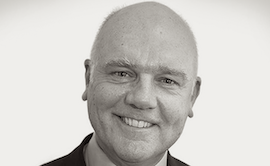 Prof Nigel Jepson is Director of the Cardiac Catheterization Laboratories at the Eastern Heart Clinic and Director of the Clinical Trials Unit at the Prince of Wales Public Hospital in Sydney, Australia. He holds the position of Conjoint Professor at the University of New South Wales. Associate Professor Jepson trained in Tasmania and completed clinical and cardiac interventional training at Harefield Hospital in London and the Eastern Heart Clinic in Sydney. He is a high volume interventionalist, practicing over the last 20 years with a specific interest in bifurcation and left main-stem disease, new stent technology and intra- coronary imaging. He has performed more than 10,000 coronary procedures and heads a transcatheter aortic valve replacement program. Associate Professor Jepson is a regular invited speaker, faculty member and live-case operator for interventional forums and meetings in USA, Europe, Asia and Australasia (including EuroPCR, TCTAP, C3, AICT, ANZET, Nanjing CBS, Malaysia Live, SCAI and the European Bifurcation Club). He is an author or co-author of more than 80 published papers and principal investigator on 30 major international, multicentre trials. Prof Nigel Jepson is Director of the Cardiac Catheterization Laboratories at the Eastern Heart Clinic and Director of the Clinical Trials Unit at the Prince of Wales Public Hospital in Sydney, Australia. He holds the position of Conjoint Professor at the University of New South Wales. Associate Professor Jepson trained in Tasmania and completed clinical and cardiac interventional training at Harefield Hospital in London and the Eastern Heart Clinic in Sydney. He is a high volume interventionalist, practicing over the last 20 years with a specific interest in bifurcation and left main-stem disease, new stent technology and intra- coronary imaging. He has performed more than 10,000 coronary procedures and heads a transcatheter aortic valve replacement program. Associate Professor Jepson is a regular invited speaker, faculty member and live-case operator for interventional forums and meetings in USA, Europe, Asia and Australasia (including EuroPCR, TCTAP, C3, AICT, ANZET, Nanjing CBS, Malaysia Live, SCAI and the European Bifurcation Club). He is an author or co-author of more than 80 published papers and principal investigator on 30 major international, multicentre trials. |
 Dr Niels van Royen is an interventional cardiologist and Head of Department of Cardiology at the Radboud University Medical Center, Nijmegen, the Netherlands. He has a background in pre-clinical research and is head of a research group on translational research in repair mechanisms in ischemic heart disease. Also he is principal investigator of several multi-center clinical trials like the TRANSIENT, COACT, REDUCE-MVI and iMODERN. These trials focus on timing of interventional procedures as well as the use of intra-coronary physiology to guide interventional procedures both in stable coronary artery disease as well as acute coronary syndromes. Dr Niels van Royen is an interventional cardiologist and Head of Department of Cardiology at the Radboud University Medical Center, Nijmegen, the Netherlands. He has a background in pre-clinical research and is head of a research group on translational research in repair mechanisms in ischemic heart disease. Also he is principal investigator of several multi-center clinical trials like the TRANSIENT, COACT, REDUCE-MVI and iMODERN. These trials focus on timing of interventional procedures as well as the use of intra-coronary physiology to guide interventional procedures both in stable coronary artery disease as well as acute coronary syndromes. |
 Prof Divaka Perera graduated in medicine from Cambridge University and completed his early clinical training at Addenbrooke’s, Papworth and West Suffolk hospitals. He undertook specialist training in cardiology in south London and sub-speciality training in interventional cardiology at Guy’s and St Thomas’ NHS Foundation Trust and Brighton and Sussex University Hospitals. Prof Divaka Perera graduated in medicine from Cambridge University and completed his early clinical training at Addenbrooke’s, Papworth and West Suffolk hospitals. He undertook specialist training in cardiology in south London and sub-speciality training in interventional cardiology at Guy’s and St Thomas’ NHS Foundation Trust and Brighton and Sussex University Hospitals.In 2008, he received a senior lectureship award from the Department of Health, Higher Education Funding Council for England (HEFCE) and the UK Clinical Research Collaboration (UKCRC). He was also appointed to the post of consultant cardiologist at Guy’s and St Thomas’ Hospital. He was promoted to reader in interventional cardiology in 2013 and to professor of cardiology in 2017. In addition to his clinical and research roles, he teaches undergraduate medical students and supervises postgraduate researchers towards MSc, MD and PhD degrees at King’s College London. |
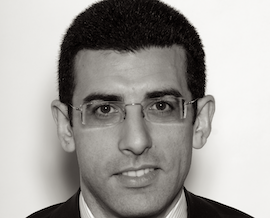 Dr Salvatore Brugaletta is a Senior Consultant Interventional Cardiologist with a large experience in coronary and structural heart disease (Intracoronary imaging, complex heart disease, left main, bifurcation, STEMI, cardiogenic shock, TAVI, Mitraclip, LAA, etc). Highly skilled in Clinical Research, Medical Education and Medical Devices with strong commitment inside medical communities. Two PhD focused on interventional cardiology from Erasmus University (Rotterdam, The Netherlands) and Sacred Heart University (Rome, Italy). Dr Salvatore Brugaletta is a Senior Consultant Interventional Cardiologist with a large experience in coronary and structural heart disease (Intracoronary imaging, complex heart disease, left main, bifurcation, STEMI, cardiogenic shock, TAVI, Mitraclip, LAA, etc). Highly skilled in Clinical Research, Medical Education and Medical Devices with strong commitment inside medical communities. Two PhD focused on interventional cardiology from Erasmus University (Rotterdam, The Netherlands) and Sacred Heart University (Rome, Italy). He has authored around 300 manuscripts published in the peer-reviewed literature. Clinically, his interests include: preventive cardiology, acute coronary syndrome / angina, drug eluting metallic and bioresorbable stents, invasive coronary imaging and TAVI (Transcatheter aortic valve implantation). Dr. Salvatore Brugaletta is an Interventional Cardiologist at the Hospital Clínic de Barcelona, Spain. |
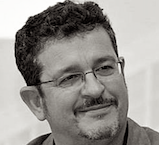 Dr Armando Perez de Prado is the director of interventional cardiology at University Hospital of Leon, Spain. He has developed a long-lasting career of research, both in preclinical and clinical areas, especially focused on coronary disease, myocardial infarction and regeneration and vascular devices. He served as co-chair of the Spanish national working group of intracoronary diagnosis, and president of the Interventional Cardiology Association of the Spanish Society of Cardiology. Currently, he is the president of Epic Foundation, an institution committed to the cardiovascular formation and research. Dr Armando Perez de Prado is the director of interventional cardiology at University Hospital of Leon, Spain. He has developed a long-lasting career of research, both in preclinical and clinical areas, especially focused on coronary disease, myocardial infarction and regeneration and vascular devices. He served as co-chair of the Spanish national working group of intracoronary diagnosis, and president of the Interventional Cardiology Association of the Spanish Society of Cardiology. Currently, he is the president of Epic Foundation, an institution committed to the cardiovascular formation and research. |
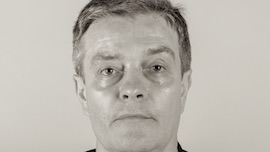 Prof Goran Stankovic is a Professor of Internal Medicine and Cardiology at the Faculty of Medicine, University of Belgrade, Head of the Department of Cardiology, Clinical Center of Serbia and Chief of Invasive Diagnostics and Interventional Cardiology. Prof. Stankovic was awarded Fellow of the European Society of Cardiology (FESC) in 2003, and Fellow of the American College of Cardiology (FACC) in 2005. He has been a member of European Association for Percutaneous Coronary Interventions (EAPCI) since 2007 and is currently a member of the EAPCI Nominating Committee. He has been one of the founding members and is currently the president of the European Bifurcation Club, and a member of the Asian and Indian Bifurcation Clubs. Prof Goran Stankovic is a Professor of Internal Medicine and Cardiology at the Faculty of Medicine, University of Belgrade, Head of the Department of Cardiology, Clinical Center of Serbia and Chief of Invasive Diagnostics and Interventional Cardiology. Prof. Stankovic was awarded Fellow of the European Society of Cardiology (FESC) in 2003, and Fellow of the American College of Cardiology (FACC) in 2005. He has been a member of European Association for Percutaneous Coronary Interventions (EAPCI) since 2007 and is currently a member of the EAPCI Nominating Committee. He has been one of the founding members and is currently the president of the European Bifurcation Club, and a member of the Asian and Indian Bifurcation Clubs. Professor Stankovic serves on the editorial boards of Journal of the American College of Cardiology, Eurointervention, European Journal of Cardiovascular Medicine, Advances in Interventional Cardiology Journal, and Heart and Blood Vessels – Journal of Cardiology Society of Serbia. For the consecutive years 2005-2014 Professor Stankovic was awarded Elite Reviewer for Journal of American college of Cardiology. In 2009 he received Simon Dack Award for outstanding Scholarship from the American College of Cardiology Foundation. |
 Dr Angela McInerney is an Interventional Cardiology Fellow in Hospital Clínico San Carlos. Her specialist interests are in intracoronary imaging, intracoronary physiology, calcium modification techniques and complex PCI. She underwent her medical training at the National University of Ireland, Galway and graduated in 2011. She undertook her internal medicine training between Galway University Hospital, Merlin Park Hospital and also trained for six months in internal medicine in the Mayo Clinic Rochester, Minnesota. She did her general cardiology training in Ireland working in Beaumont Hospital, St Vincents University Hospital and Cork University Hospital. She was awarded the Brian McGovern Travelling Fellowship grant from the Irish Board for Cardiology Training in 2018 which allowed her to start her interventional fellowship in Hospital Clínico San Carlos. She has been keenly involved in various research projects pertaining to intracoronary physiology and intravascular imaging having authored and co-authored a number of research articles as well as review articles and book chapters. Angela regularly partakes in the preparation and delivery of educational courses in Clínico San Carlos and values the educational aspect of her role. She plans to complete her coronary interventional fellowship before completing a structural intervention fellowship also within Hospital Clínico San Carlos for which she has received a European Cardiology Society grant. Dr Angela McInerney is an Interventional Cardiology Fellow in Hospital Clínico San Carlos. Her specialist interests are in intracoronary imaging, intracoronary physiology, calcium modification techniques and complex PCI. She underwent her medical training at the National University of Ireland, Galway and graduated in 2011. She undertook her internal medicine training between Galway University Hospital, Merlin Park Hospital and also trained for six months in internal medicine in the Mayo Clinic Rochester, Minnesota. She did her general cardiology training in Ireland working in Beaumont Hospital, St Vincents University Hospital and Cork University Hospital. She was awarded the Brian McGovern Travelling Fellowship grant from the Irish Board for Cardiology Training in 2018 which allowed her to start her interventional fellowship in Hospital Clínico San Carlos. She has been keenly involved in various research projects pertaining to intracoronary physiology and intravascular imaging having authored and co-authored a number of research articles as well as review articles and book chapters. Angela regularly partakes in the preparation and delivery of educational courses in Clínico San Carlos and values the educational aspect of her role. She plans to complete her coronary interventional fellowship before completing a structural intervention fellowship also within Hospital Clínico San Carlos for which she has received a European Cardiology Society grant. |
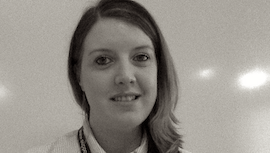 Dr Breda Hennessey is an interventional cardiology fellow at Hospital Clínico San Carlos. Dr Breda Hennessey is an interventional cardiology fellow at Hospital Clínico San Carlos.She Graduated from the Third Faculty of Medicine in Charles University in Prague. Following this ,she returned to Ireland in 2011. She completed her Internal Medicine training in 2014 and General Cardiology training in 2019 through the Royal College of Physicians in Ireland. She was awarded the Brian McGovern Scholarship by the Irish Cardiac Society in 2019 and commenced her clinical and research fellowship at Hospital Clínico San Carlos last November. She Is currently working as an assistant PI in the ongoing DCR4 contrast study, a multicentred prospective randomised study, investigating the impact of new technologies in reducing contrast burden in complex PCI . She is also involved with the complex PCI subset, including the CTO programme at Hospital Clínico San Carlos. |

This essential guide is an educational activity intended for an international audience, specifically interventional cardiologists and cardiologists. However, other healthcare professionals involved in the care of coronary artery disease (CAD) patients will also find this topical.
Intracoronary Guidance in Complex PCI provides all you need to know to understand how to implement intracoronary guidance using physiology and imaging into complex PCI cases.